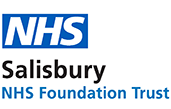Different types of chemotherapy drugs are used to treat different cancers and can be administered in different ways and at different points in your treatment pathway.
Chemotherapy destroys cancer cells by interfering with their ability to divide and grow. Cancer cells divide and grow in a different and uncontrolled way and chemotherapy drugs can interfere with the cancer cells to change the way they grow.
Chemotherapy is a systemic treatment; meaning this affects the whole body.
Chemotherapy prior to surgery is known as neo-adjuvant chemotherapy.
Chemotherapy after surgery is known as adjuvant chemotherapy.
For information on the different medications used to treat different cancers, visit Macmillan Cancer Support’s website where you will be able to find information on the medication you have been prescribed via their ‘A to Z list of cancer drugs’.
Alternatively, Cancer Research UK also provide information on medication which you may be prescribed, you can also search via the following link: Cancer drugs A to Z list.
The NHS website has useful information via the following links to explain the process of chemotherapy: What happens during chemotherapy.
Important information during treatment:
The following links provide information which you may find useful, during your chemotherapy treatment:
Cancer Research UK:
Chemotherapy tablets and capsules
Late side effects of chemotherapy | Cancer in general | Cancer Research UK
About sex and chemotherapy | Cancer in general | Cancer Research UK
Fertility and chemotherapy | Cancer in general | Cancer Research UK
Chemotherapy Safety At Home | Cancer In General | Cancer Research UK
Macmillan Cancer Support:
Chemotherapy side effects | Macmillan Cancer Support
Sex and cancer | Macmillan Cancer Support
Coping with hair loss
Coping with fatigue (tiredness)
Side effects of cancer treatment
Cancer and fertility – information for women
Cancer and fertility – information for men


